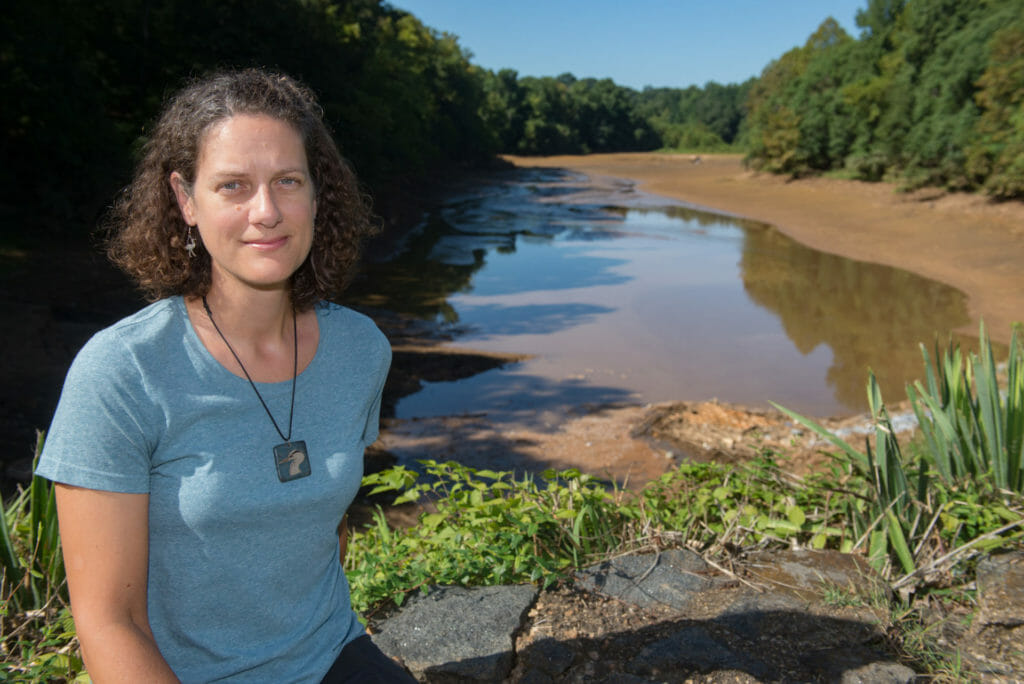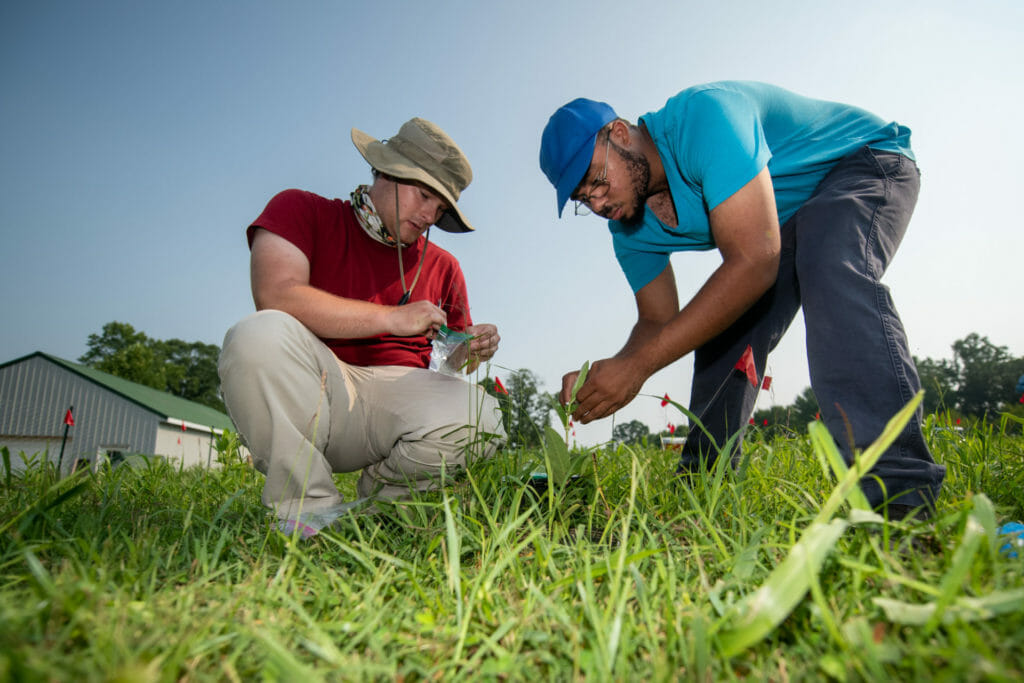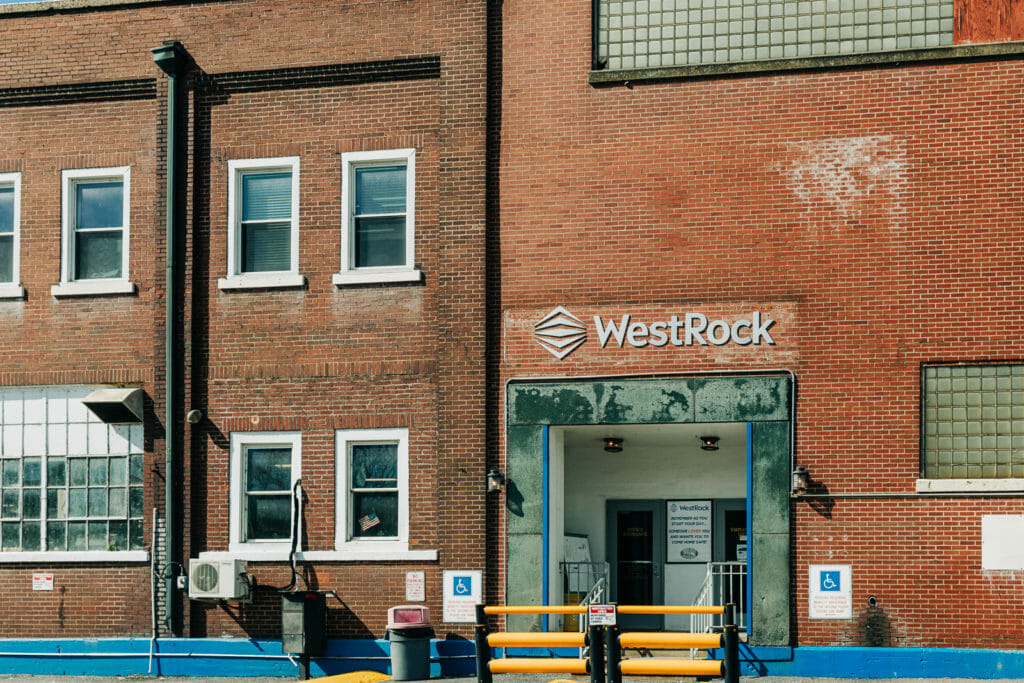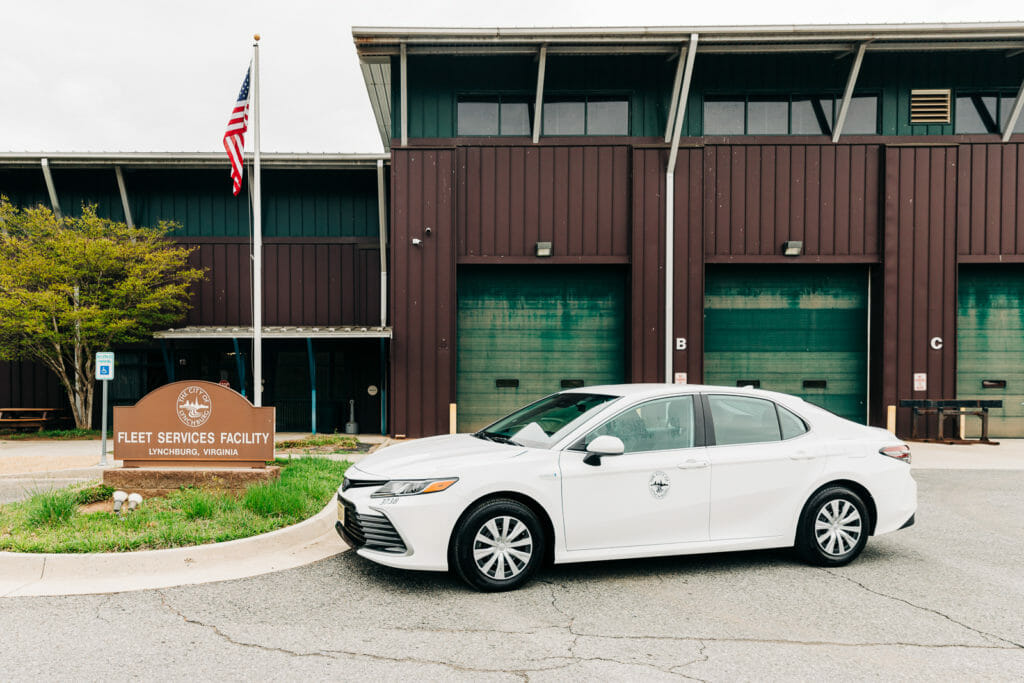
Dr. Henry-Stone at College Lake, located off of Lakeside Drive in Lynchburg.
When the University of Lynchburg achieved carbon neutrality last year, it became Virginia’s first institution of higher education to take such a landmark step. Dr. Laura Henry-Stone, the university’s director of Sustainability, credits the school’s small, private status: “We’re able to be innovative and adaptable in the ways we pursue our institutional commitments.”
Across the city, public and private organizations have made sustainability commitments with an eye toward future generations. Read on to learn why the University of Lynchburg and its fellow environmental champions are inspired to take action—and how their actions are making a difference.
University of Lynchburg

Students conducting Milkweed research at the Claytor Nature Center
According to Henry-Stone, the university’s leaders realize that “everyone benefits when we recognize and act on our environmental obligations to future generations.”
As well as future generations, current students learn to engage in a globally diverse society through innovative actions, “and they’re prepared to be leaders in sustainability—wherever their lives take them,” she adds.
To reach their goal, the University of Lynchburg arranged carbon offsets through Collegiate Clean Energy. A strategic partner, CCE uses landfill methane to generate electricity.
Having reached its goal, the university shows no signs of slowing down in its environmental commitments. “We continue to investigate ways to further reduce our carbon footprint through initiatives like solar arrays on campus,” she says. They’re also adopting intentional management of their forested properties for carbon sequestration, such as almost 500 acres at Claytor Nature Center.
The university also wants to use its influence to provide valuable information to the community. For example, they recently participated in an urban heat mapping study to supply data about Lynchburg neighborhoods that are particularly vulnerable to high heat events, which are increasing in frequency and intensity due to climate change.
Henry-Stone says the University of Lynchburg’s actions have had a ripple effect through the community. “We’re a member of the Virginia Foundation for Independent Colleges (VFIC) and the Council of Independent Colleges of Virginia (CICV), both of which have collaborated with us on different sustainability and resilience projects.”
WestRock

WestRock is located off of Concord Turnpike in Lynchburg
One of America’s largest fiber-based packaging companies, WestRock uses much of what it recovers to create recycled packaging.
It’s a commitment the Atlanta-based company has been working toward for years, according to Mohammad Najafi, a senior process engineer at WestRock’s Lynchburg mill. “We’ve been recycling paper to make paper for more than 100 years,” says Najafi. “It is how we achieve circularity in our sustainability practices.”
Ensuring their products can be recycled instead of going to the landfill is the right thing to do. It’s also an initiative that’s important to WestRock’s buyers. “Today, consumers want sustainable solutions,” Najafi says. “We can provide that.”
“Fiber-based packaging has many benefits. Ultimately it reduces waste that could otherwise head to landfills, and that’s top-of-mind to consumers,” Najafi says. “When virgin fiber is used to create our packaging solutions, it is sourced from responsibly managed forests. Our fiber sourcing system is certified to the highest standards, which helps us meet our consumers’ sustainability expectations.”
As demand for fiber-based packaging continues to grow, WestRock is evaluating its fuel mix, enhancing operational and capital investments, and continuously improving its energy efficiency by leveraging biomass, its most important renewable energy source.
The City of Lynchburg

City of Lynchburg Fleet Services hybrid car
With a goal of significantly reducing its carbon footprint over the coming decade, the City of Lynchburg has launched its Climate Action Plan. “An important part of our initiative is phasing in an electronic vehicle program,” explains Chuck Cramer, director of Fleet Services.
The plan has four phases: to develop the infrastructure for electric vehicle supply equipment; to introduce hybrid-electric vehicles where practical; to introduce plug-in hybrid-electric vehicles where practical; and finally, to introduce battery-electric vehicles where practical.
The City of Lynchburg started a pilot this year with a small number of vehicles. “Our first major step will come during Fiscal Year 2023, when we transition almost a third of the Police Department Field Operations fleet to Hybrid Electric Vehicles—as well as several other electric fleet vehicle purchases,” Cramer says.
“Greenhouse gas emissions from vehicles and other sources affect every community around the world,” says Cramer, adding that in most regions, transportation accounts for more than 60% of the greenhouse gas emissions. “The City has an opportunity to minimize the impacts from our operations. It’s important that we aggressively take actions that will help ensure environmental justice for the people we serve each day.”
Check out more ways to Go Green in LYH

Robin Sutton Anders is a Greensboro, N.C.-based writer and the managing editor of Verdant Word Communications.